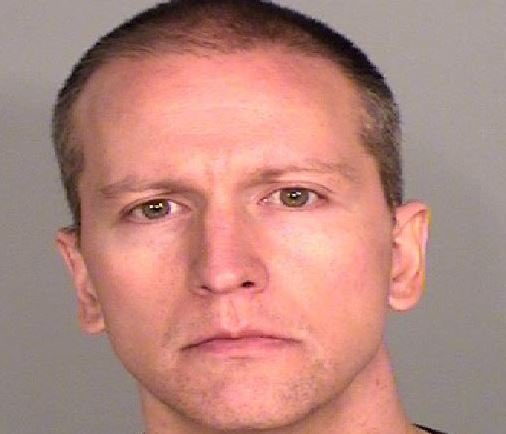On Tuesday, April 20, 2021, a jury convicted former Minneapolis police officer Derek Chauvin of murdering George Floyd. Chauvin was found guilty on all counts in Floyd's death, an incident that sparked worldwide protests against police brutality.
Floyd died on May 25, 2020, after he was arrested by police on suspicion of passing a counterfeit $20 bill. Video footage showed Chauvin kneeling over the 46-year-old African-American man's neck for more than nine minutes.
Chauvin to Spend 'Life in Prison'?

Judge Peter Cahill read the verdict at the heavily secured Hennepin County Government Center in downtown Minneapolis, where the trial began last month.
Not long after the conviction, journalist and author Scott Dworkin claimed that Chauvin, who was fired from the department after video footage of his fatal encounter with Floyd went viral, would spend "the rest of his life in prison."
Fact-Check
Chauvin, 45, has been out on bail since fall 2020. The 12-person jury found Chauvin guilty of three crimes: unintentional second-degree murder, third-degree murder and second-degree manslaughter after a trial that went on for roughly two weeks. Each offense carries a different maximum prison sentence.
Moments after Judge Cahill read out the verdict, sheriff's deputies escorted Chauvin out of the courtroom in handcuffs. Cahill had revoked Chauvin's bail, which meant the former police officer would remain in the custody of the Hennepin County Sheriff's Office until the sentencing hearings, which the judge said would take place in about eight weeks.
This means that the proceedings to determine the exact length of Chauvin's prison sentence will begin sometime in mid-June. According to state law, the maximum prison sentence for second-degree unintentional murder is 40 years, the maximum sentence for third-degree murder is 25 years, and the maximum sentence for second-degree manslaughter is 10 years.

For a person like Chauvin with no prior criminal history, each murder charge carries a presumptive sentence of 12 1/2 years in prison, and a manslaughter charge has a presumptive sentence of four years, under Minnesota's sentencing guidelines, according to The Associated Press.
However, prosecutors sought an additional prison term based on several aggravating factors such as the fact that Chauvin was a uniformed police officer acting in a position of authority at the time of Floyd's murder, and that a child had also witnessed the incident. Therefore, Cahill could consider those circumstances while determining Chauvin's sentence.
In Minnesota, defendants typically serve two-thirds of their penalty in prison, with the rest on parole. That said, the length of Chauvin's prison sentence remains unknown but it is possible that he could end up spending decades behind bars.








